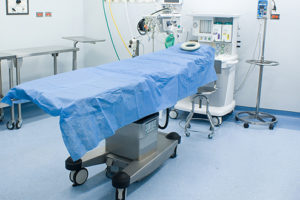Lloyd Mudiwa considers what the state of the UK’s NHS at its 70th anniversary might mean for the much younger Irish public health service system
As the United Kingdom’s National Health Service (UK NHS) marked its 70th anniversary on July 5, our columnist Prof Pierce A. Grace, in his feature ‘The NHS at 70: A health service fit for heroes’ (IMT 22/06/2018), concluded that at its foundation back in 1948 England’s health service was indeed “fit for heroes”.

Lloyd Mudiwa
Like many Irish doctors, Prof Grace spent part of his career working in the public health service in the United Kingdom (UK).
In his piece, Prof Grace wrote that today the NHS is showing some signs of wear and tear (long waiting times and lists, a need to refer to independent providers for some elective services, and crowded emergency departments).
An independent analysis produced for the British Broadcasting Corporation (BBC), to mark the 70th commemoration, appears to confirm Prof Grace’s conclusion.
The NHS lags behind other countries when it comes to treating common, life-threatening illnesses, with the UK judged to be a “below-average” performer on preventing deaths from heart attacks, strokes and cancer, according to the BBC report entitled, ‘How good is the NHS?’, which described the service as a “perfectly ordinary” service produced for a “middling level of cost”.
The analysis produced for the BBC contrasted this withering criticism with the boast by Aneurin (Nye) Bevan, the late UK minister who oversaw the creation of the NHS, that the service was the “envy of the world” (at a time when few countries had a universal health system). The independent analysists, who included Nigel Edwards, chief executive of the Nuffield Trust think tank, claimed the NHS is running on “very scarce resources in terms of staff and equipment and achieves poor outcomes in some vital areas like cancer survival”.
The BBC report uses 18 other countries, including Ireland, to draw a comparison: the others being Australia, Austria, Belgium, Canada, Denmark, Finland, France, Germany, Greece, Italy, Japan, Netherlands, New Zealand, Portugal, Spain, Sweden, and the United States (US).
Edwards’s team examined key issues facing the NHS at this milestone birthday, and also produced reports for the BBC, looking at finances, social care, technology and the health of the nation (all of these being areas where the NHS arguably outperforms Ireland).
The team had a justification for the poor NHS performance. The NHS does get less funding than services in the other 18 nations studied, the experts pointed out.
Nonetheless, the analysis also found that there were some “definite strengths”, and that these included providing “unusually good financial protection” from the consequences of ill-health and being relatively efficient.
While undeniably there are a lot of “definite strengths” in Ireland’s Health Service Executive (HSE), largely owing to medical practitioners, I wouldn’t be too sure that this includes providing “unusually good financial protection” from the consequences of ill-health.
Funding figures compiled by the OECD show that the UK spent approximately 9.8 per cent of the total value produced in its economy (gross domestic product, or GDP) on healthcare in 2016 and 9.7 per cent in 2017.
The UK’s expenditure is just below an average of 10.2 per cent for the independent analysis of the BBC comparison group.
While at the time of publication, both the UK and Ireland’s comparative figures for 2017 are not fully validated and should, therefore, be considered as preliminary estimates and may be subject to refinement, the OECD report shows that at 7.1 per cent (down from 7.4 per cent in 2016), of Ireland’s health expenditure is a smaller percentage of its GDP than the UK’s spend.
While this report aims to look specifically at the NHS, in practice it is usually both necessary and desirable to examine all patients, both public and private, and all healthcare in the UK. It accounts for the fact that many other countries such as Ireland have a more even mix of public and private care. So comparing the public system in the UK only with the public system of other countries would create distorting effects.
The US spends much more than any other country in the group (17.2 per cent). When the US is excluded, the average spend is brought down to 9.8 per cent, so the UK remains below average — but only very slightly.
Reflecting the NHS’s principles of being funded from taxation and free at the point of use, healthcare spending from taxation and compulsory insurance is slightly above average in the UK, at 7.7 per cent of GDP compared with an average of 7.5 per cent.
Also in favour of the NHS, at least compared to Ireland, is the fact that spending from charging patients, and from private insurance, is below average, at 2 per cent, compared with 2.7 per cent across the comparison countries.
The NHS analysis on behalf of the BBC places Ireland behind all 19 comparative states, when it comes to healthcare spending as a proportion of GDP (2016).
In contrast, Ireland is third only to the USA and Germany for healthcare spending per person, adjusted for living costs (2016), respectively. Both Germany and the USA outspend Ireland in terms of State funding of the health service.
Healthcare spending in the UK is slightly lower than the average in comparable countries, both in terms of the proportion of national income spent on healthcare and in terms of spending per person.
Even though the UK’s overall health expenditure is well below France and Germany, with 11 per cent and 11.3 per cent respectively, but above Ireland (7.8 per cent) and several southern European countries like Spain (9 per cent).
According to the independent review, which also looked at performance on the 12 most common causes of death, the NHS is lagging on the key killers, performing worse than average on eight of them — breast cancer, colorectal cancer, lung cancer, pancreatic cancer, lung disease, respiratory infections (such as pneumonia), stroke, and heart attacks.
Rather than commission yet more reports, the document on the state of the NHS (especially in a country which seems to aspire towards an NHS-style health service such as ours), ought to serve as a strong reminder of the wisdom of sufficiently investing in our health system — ‘why make mistakes, when you can learn from someone else’s experiences?’
A key trend indicated in the aforementioned latest OECD data and analysis on health spending is also of interest.
The OECD report shows that health spending in 2016 in these countries grew by its fastest rate in seven years, with further growth expected in 2017.
OECD spending on healthcare increased by 3.4 per cent, on average, in 2016, the highest rate since 2009 although still below pre-economic recession crisis levels. Preliminary estimates for 2017 expect spending to keep growing. Great so far!
However, the rate of increase expected for last year is less than in 2016, at around 2.5 per cent. Furthermore, the figures for 2016 and 2017 do not refer solely to governments’ spend, but they also include the expenditure by individuals on their own health.
Hence, while health spending as a share of GDP was 8.9 per cent in 2016, it is forecast to remain at this level in 2017. This does not augur well, at least in the short- to medium-term, for the OECD countries’ services, which unfortunately includes our own HSE.
 Irish Medical Times Medical News for Healthcare Professionals
Irish Medical Times Medical News for Healthcare Professionals






